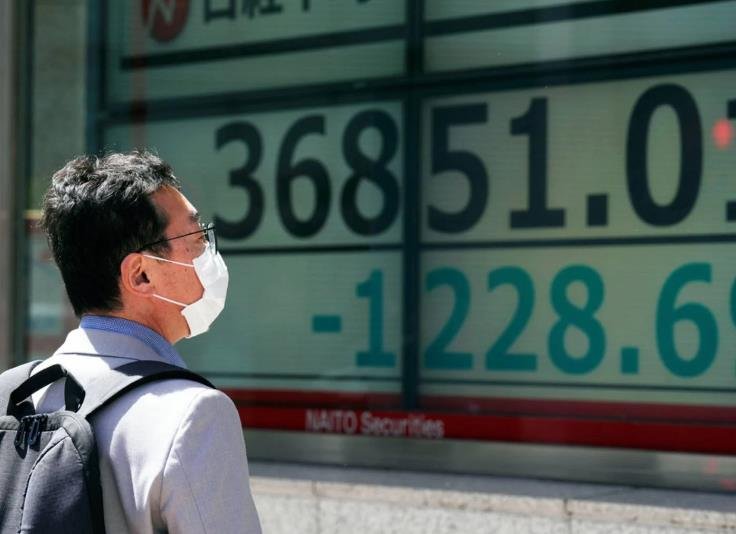Tokyo’s stock market continued its upward trajectory on Wednesday, marking the third consecutive day of gains driven primarily by robust performance in the technology sector. The Nikkei Stock Average, comprising 225 key issues, closed up 373.71 points, a 0.96% increase, reaching 39,277.39. Meanwhile, the broader Topix index advanced by 21.70 points, or 0.81%, settling at 2,703.72. Investors remained optimistic despite lingering uncertainties surrounding the upcoming U.S. presidential election, which is scheduled for early next week.
Technology Stocks Lead the Charge
The Prime Market, Tokyo’s top-tier segment, saw significant gains led by sectors such as electric power and gas, nonferrous metals, and machinery. Technology shares were at the forefront of the day’s rally, briefly pushing the Nikkei index over the 39,000 mark. This surge was influenced by the Nasdaq hitting a record high overnight and a notable rise in a key U.S. semiconductor index. These factors combined to create a favorable environment for tech stocks, reflecting global trends where technology continues to dominate market performance.
- Electric Power and Gas: Companies in this sector benefited from stable demand and strategic investments in renewable energy.
- Nonferrous Metals: Rising commodity prices and increased industrial activity boosted the performance of metal-related stocks.
- Machinery: Advanced manufacturing and automation technologies drove growth in the machinery segment.

Currency Stability Amid Political Uncertainty
Despite the market rally, currency movements remained relatively stable, with the U.S. dollar hovering in the lower 153 yen range. This stability occurred in the wake of Japan’s ruling coalition failing to secure a majority in Sunday’s general election and ahead of the Bank of Japan’s (BOJ) two-day policy meeting starting on Wednesday. Market participants are closely monitoring these developments, as political outcomes could influence economic policies and investor sentiment.
Yen Holds Steady Against the Dollar
At 5 p.m. Tokyo time, the dollar was trading at 153.32-34 yen, showing minimal movement compared to previous sessions. The euro was quoted at $1.0818-0820 and 165.87-91 yen, while the yen remained firm against both currencies. The slight dip in the yield on the 10-year Japanese government bond, falling by 0.020 percentage points to 0.950%, mirrored a decline in long-term U.S. Treasury yields. This movement suggests a cautious approach by investors, balancing optimism from stock market gains with vigilance over potential policy shifts.
Impact of EU Tariffs on Chinese Electric Vehicles
Amidst the positive momentum in Tokyo, significant trade developments have also influenced global markets. The European Union has imposed higher tariffs, up to 45.3%, on electric vehicles (EVs) imported from China. These tariffs, effective Wednesday, stem from over a year of anti-subsidy investigations aimed at addressing unfair competitive practices. Beijing has swiftly responded, stating that it “does not agree with or accept” the tariffs, further escalating trade tensions between the EU and China.
Table: Key Details of EU Tariffs on Chinese EVs
| Aspect | Details |
|---|---|
| Tariff Rate | Up to 45.3% |
| Effective Date | Wednesday |
| Reason for Tariffs | Anti-subsidy probes against Chinese EVs |
| EU Response | Imposes higher tariffs |
| China’s Reaction | Rejects tariffs, cites unfair trade practices |
This development has broader implications for the global electric vehicle market, potentially increasing costs for Chinese EV manufacturers in Europe and prompting strategic adjustments. Investors are watching closely, as these tariffs could influence supply chains, pricing strategies, and market dynamics within the EV sector.
Investor Sentiment and Future Outlook
Despite the mixed signals from different regions, investor sentiment in Tokyo remains positive, buoyed by strong tech performance and stable currency conditions. However, the looming U.S. presidential election introduces a layer of uncertainty that investors are cautious about. The outcome of this election could have far-reaching effects on global economic policies, trade relations, and market stability.
Yutaka Miura Weighs In
Yutaka Miura, a senior technical analyst at Mizuho Securities Co., commented on the current market conditions: “While there are many major events throughout the week from the BOJ policy meeting to the release of U.S. jobs data, the upcoming U.S. presidential election has drawn more attention from investors.” This focus on the election underscores the interconnectedness of global markets and the influence of political events on financial performance.
Gold Prices Reach All-Time High
In addition to stock market movements, precious metals also saw notable activity. The benchmark price of gold, set by Tokyo’s Tanaka Kikinzoku Kogyo K.K., hit an all-time high at 15,104 yen per gram. This surge reflects growing demand for gold as a safe-haven asset amid heightened geopolitical tensions, particularly in the Middle East. Investors are increasingly turning to gold to hedge against market volatility and economic uncertainties.
Factors Driving Gold Price Surge
- Geopolitical Tensions: Ongoing conflicts and instability in the Middle East have heightened demand for safe assets.
- Economic Uncertainty: Concerns over market fluctuations and political outcomes drive investment in gold.
- Currency Fluctuations: A stable yen against the dollar makes gold more attractive to Japanese investors.
Tokyo’s stock market rally, driven by strong performances in the technology sector, underscores the enduring influence of Big Tech on global financial markets. While other regions like Hong Kong and Shanghai experienced declines, the Nikkei’s rise reflects investor confidence in Japan’s economic resilience and the strategic focus on technology and innovation. However, the stability of currency movements and the anticipation of the U.S. presidential election introduce elements of caution that investors must navigate.
Simultaneously, global trade tensions, highlighted by the EU’s imposition of high tariffs on Chinese electric vehicles, add complexity to the market landscape. These developments, combined with the surge in gold prices, illustrate the multifaceted nature of today’s financial environment, where technology, politics, and global trade dynamics interplay to shape investor behavior and market outcomes.







